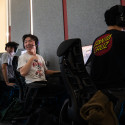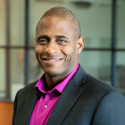UW Experts Connect with New Supercomputing Partnership
UW–Madison faculty and staff have eight partnerships with a National Science Foundation (NSF) project to advance high-performance computing in science and engineering.
On Friday, the NSF’s National Science Board chose two universities to lead national partnerships for advanced computing at the University of Illinois-Urbana (U of I) and the University of California-San Diego (UCSD). UW–Madison is one of dozens of universities that will contribute research to the effort. Partnerships include:
- Evaluating the teaching and learning potential of computational science and identifying the best programs, which could serve as national models. Greg Moses, associate dean for research in the College of Engineering, chemistry professor Arthur Ellis, and the Wisconsin Center for Education Research lead the proposal. This partnership is with UCSD; all others are with the U of I.
- Sangtae Kim, chair of chemical engineering, will develop a national shared database of information in the biological sciences with a World Wide Web interface. A national database is especially needed in the exploding field of genetic sequencing and mapping. This program will look at the hardware needed to support such a database.
- Computer scientist Mary Vernon will help develop new scheduling algorithms, allowing the hundreds of national users of these central computers to get on-line more quickly and get answers faster.
- Computer scientist Miron Livny will promote national use of a software system he developed at UW–Madison called Condor. The system multiplies the computing capacity available to researchers by capturing the power of idle desktop machines scattered throughout the scientific community.
- John Anderson, a professor in atmospheric and oceanic sciences, will help develop better computer visualization tools that can make sense out of massive streams of data. Using both flat and virtual reality displays, Anderson will develop systems that can simulate diverse environments.
- Industrial engineer Gregg Vanderheiden, director of the Trace Research and Development Center, will look at universal and disability design in high-performance computers. The center has been successful in getting disabled-access featured in most major brands of personal computers.
- Computer scientists David DeWitt and Jeff Naughton are developing new database systems that can manage types of data that traditional computers handle poorly. The new systems could allow, for example, better storage and retrieval of large sets of satellite images.
- Biochemist John Markley is developing computational software for wider-scale use in magnetic resonance imaging (NMR) technology.
Tags: research



